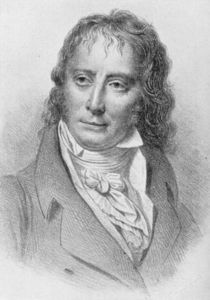Liberty Matters
A Republic? France Has Kept It
 Alan Kahan writes: "The short answer is that good religion is not needed to found a republic, but it is necessary to keep it, something France has never managed well."
Alan Kahan writes: "The short answer is that good religion is not needed to found a republic, but it is necessary to keep it, something France has never managed well."I have a hunch that a thought like this lies behind some of Kahan's interest in Constant's judgments about religion and politics. And while the idea of French republican instability is a very familiar one, I think it's worth pausing on. The Fourth and Fifth Republics have governed for 73 years. The Third, Fourth, and Fifth have governed for all but five of the last 143 years.
For some purposes I'm happy to joke that 200-year old ideas, trends, or phenomena still count as recent, new, and basically untested, and that we shouldn't really trust anything less than 500 years old. But if we take Constant seriously about the distinctiveness of modern conditions, then the relevant era when there could have been liberal democratic republics in large states couldn't be any more than 250 years old.
Anglophone historiography tends to emphasize French instability by contrasting it with a British constitutional order that hasn't had any formal ruptures since 1688 or the American that has maintained the same formal constitution since 1789. The British transition to fully inclusive liberal democracy (though not republicanism) was indeed comparatively smooth, but it was gradual -- very gradual. By the time the Third Republic with universal adult male suffrage began in France, Britain had only recently expanded its male franchise to about 60 percent of the adult male population. As was true in much of Europe, working-class suffrage awaited the pressures of World War I. In the United States the formal continuity of the Constitution is belied by the secession and Civil War that had just recently ended when the Third Republic was established -- and the universal adult male suffrage established after the Civil War was undone with the end of Reconstruction in 1876, not to be reestablished for 90 years. And it's not clear that the transition from the Fourth to Fifth Republic was any more of a crisis and rupture than the American events of 1937 or 1965, despite the formal change in the French case.
In short, France completed the transition to a broadly inclusive democratic republic relatively early, and once it did so, it did so pretty well once and for all. The Third Republic was not immune to the general crisis of the 1930s, and defeated and occupied France yielded a Vichy regime, while Britain was spared a Mosley regime. But if Vichy is the crux of the continuing notion that France can't keep republican government, well, I have a hard time believing that it was caused by the absence of Constantine religion. Majority-Protestant Germany had no shortage of obsession with the beautiful and the noble, and Germany's liberal Protestant neighbors weren't immune to the crisis of the 1930s or to German invasion either.
As a liberal I have plenty of complaints about the French laique civic republican tradition. But instability and propensity to crisis isn't one of them. Across the decades when the kind of republicanism Constant hoped for under modern conditions has been possible, the French record doesn't bear that stereotype out.
There's good reason to believe that Constant believed religion of the right sort was necessary for the maintenance of free government. But it might be telling that we have to connect the dots between his political and religious works in order to support the claim; he didn't develop and support it in the kind of depth that he did do many of his other ideas in constitutional politics. It was relatively underdeveloped in his own mind, and it hasn't proven to be prima facie true in the way that would drive us to mine him for insights. I think Constant's great works on religion and politics might not be improved by being tied too tightly together; their contributions might be most enduring and important when kept at some distance from each other.
Copyright and Fair Use Statement
“Liberty Matters” is the copyright of Liberty Fund, Inc. This material is put on line to further the educational goals of Liberty Fund, Inc. These essays and responses may be quoted and otherwise used under “fair use” provisions for educational and academic purposes. To reprint these essays in course booklets requires the prior permission of Liberty Fund, Inc. Please contact oll@libertyfund.org if you have any questions.